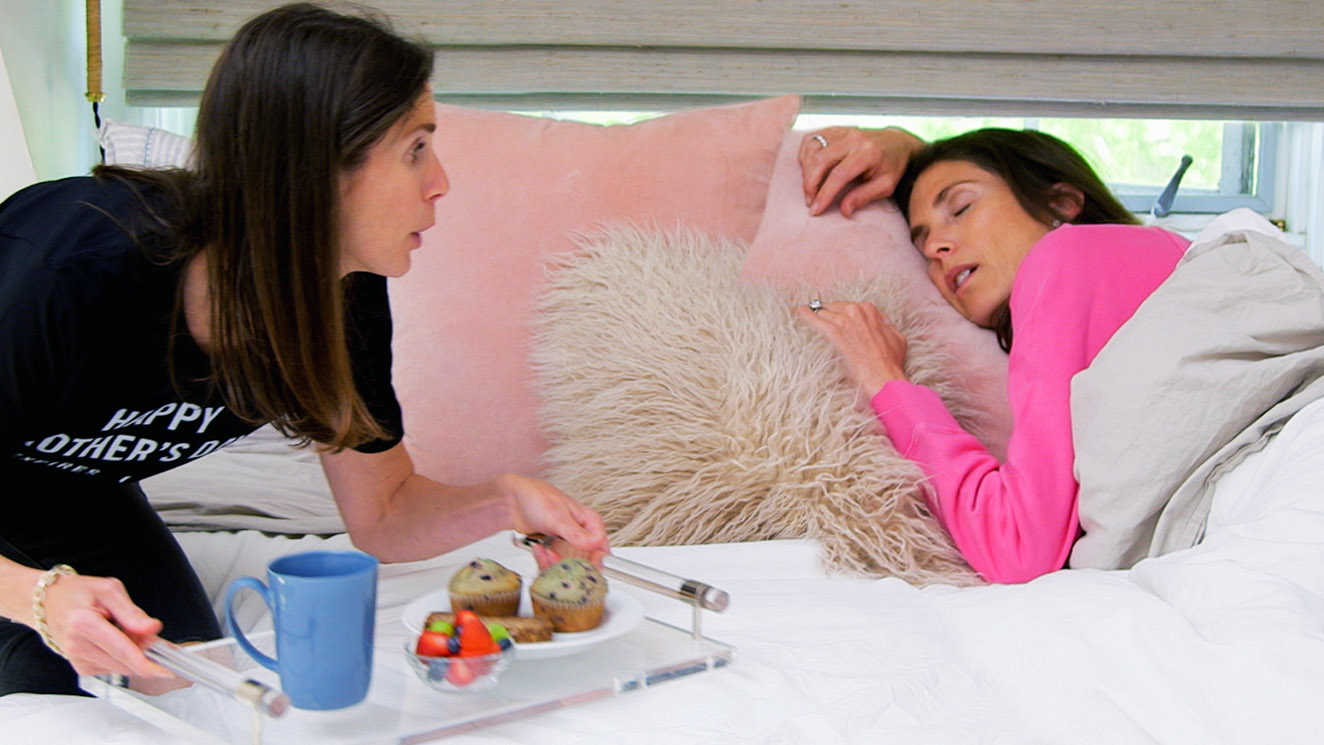

I survived infertility but I still hate Mother’s Day.
I have no problem with it being a “Hallmark holiday.” In fact, my family has probably kept Hallmark in business for many years. We used to joke that you were only successful in sharing birthday sentiments if the card made the recipient cry. And also that receiving any less than three cards for one particular occasion must mean you aren’t so important to the giver.
When I was growing up, we had epic Mother’s Day brunches. The whole family (cousins, second cousins, great aunts) would gather for a traditional bagel and lox extravaganza with seemingly endless accoutrements. I went through periods of loving this annual tradition as a kid getting to play with all of my cousins, then hating it as a teen because it was a family day (eye roll).
Later in life when I was waiting tables, I came to despise Mother’s Day because it felt like the longest, most thankless shift of the year (take note, brunchers!!). People were feeling what I had felt with my own family: the kids loved it, the teens hated it, and then everyone else – literally everyone – had to face whatever family feelings came out that day by sitting at a table filled with overpriced mimosas and bread pudding.
Once I moved across the country to California, I came to appreciate the day once again and tried to make it back to New York to celebrate when I could. I lived far from my mother and grandmother, who were (and are!) dear to me, so any complaints I had about the holiday seemed to disappear and it was again a good way to find a reason to be together.
Then I got married and hoped to create my own family, and BOOM, I hated Mother’s Day all over again. I spent six years trying to become a mother, which meant more than 2000 days where I painfully wished to hold a baby in my arms, to no avail. The first year we spent trying to get pregnant and didn’t, I noticed that Mother’s Day caused a small pang in my heart. The second year we tried to get pregnant and didn’t, that pang morphed to anxiety and sadness, and by the third year it was full blown depression. The Mother’s Day anxiety would start about a month before the actual day. Once the day came, I mostly wanted to hide under the covers for the full 24 hours, and some years, I did.
One year we finally did get pregnant, but that pregnancy didn’t last. The unviable embryo began leaving my body on Passover, but didn’t make its official exit until several weeks later, a couple of days before Mother’s Day. When you’re struggling with infertility, holidays are especially brutal, as they mark the passage of time. When the holiday is centered around family – as many of them are – it tends to serve as a stark reminder of what isn’t.
And speaking of “what isn’t”… As a kid I remember other family members complaining about family holidays, but I didn’t get it. Now I do.
I spent much of my infertility journey trying to learn how to simultaneously carry joy and grief – the joy of being happy for someone I loved announcing a pregnancy while being so sad for myself; the joy of celebrating my incredible mom on mother’s day while my heart was breaking inside; the joy of my everyday life which I truly did love, but the grief of yearning for more.
The good news is that I emerged victorious; infertility did not win. I have two beautiful twins. A boy and a girl. After all that we went through, I still marvel daily that they exist.
But I still hate Mother’s Day. I have anxiety just thinking about it approaching. I can’t help but think about all the women who will be in pain on that day. And men too. And not just because of infertility, but also those who’ve lost a mother, those who want to speak to their mother but don’t or can’t, those who’ve never met their mother.
For those experiencing infertility, Mother’s Day is one of the hardest days out there. I’d call it maybe the worst one; it was for me. I wanted to feel seen and acknowledged even though I didn’t qualify as someone to be celebrated on Mother’s Day. And now that I can be officially “Hallmark celebrated,” I’m surprised to find that I don’t want to be.
For me, acknowledging the complexities around Mother’s Day is an important way to bring meaning to the holiday. Ways to acknowledge:
- Flowers. I know that sometimes flowers are controversial because they don’t last. To me they’re a slam dunk. They are a beautiful way to show someone you’re thinking about them. If you want to, you can keep it that simple. Just a note with “I’m thinking about you” packs a meaningful punch. Every time. If you’re close to the recipient, they will know that you know that they know you know what they mean.
- Words of affirmation. I made these infertility-specific cards of affirmation for this exact reason. People ask me ALL THE TIME what to get or do for their friend who is struggling to conceive or who has experienced a loss. These cards are true works of art with affirming thoughts and ideas to hold tight to when truly in the struggle. No toxic positivity here.
- Make a date. Activate. Tell your friend you want to go for a hike, a movie, a glass of wine on mother’s day. Or make it a group affair. I’ve seen so many women gather for a “my mother passed away” Mother’s Day cocktail and I think it’s beautiful.
I don’t know if one day I will get on board with Mother’s Day. I don’t think I will. Of course I love the idea of brunch and mimosas – I’m not savage – but I want them because I love all the days I get to be a mom, not just the second Sunday in May. Hating Mother’s Day honestly makes me feel like an enormous Debbie Downer. But if that’s the grief that has to accompany my joy of parenthood, I’ll take it.







